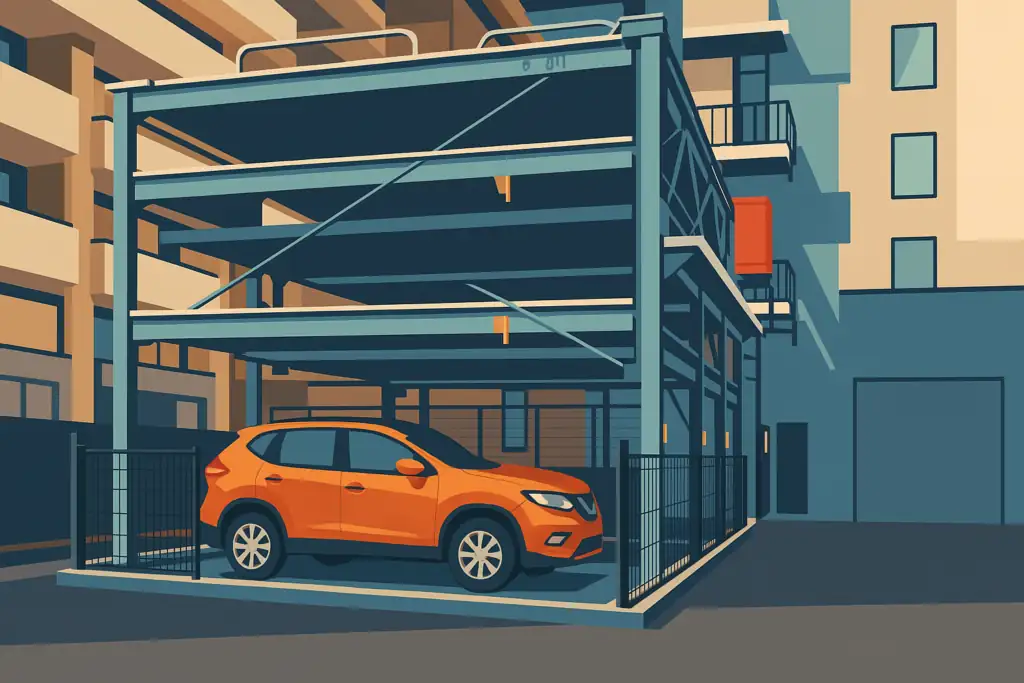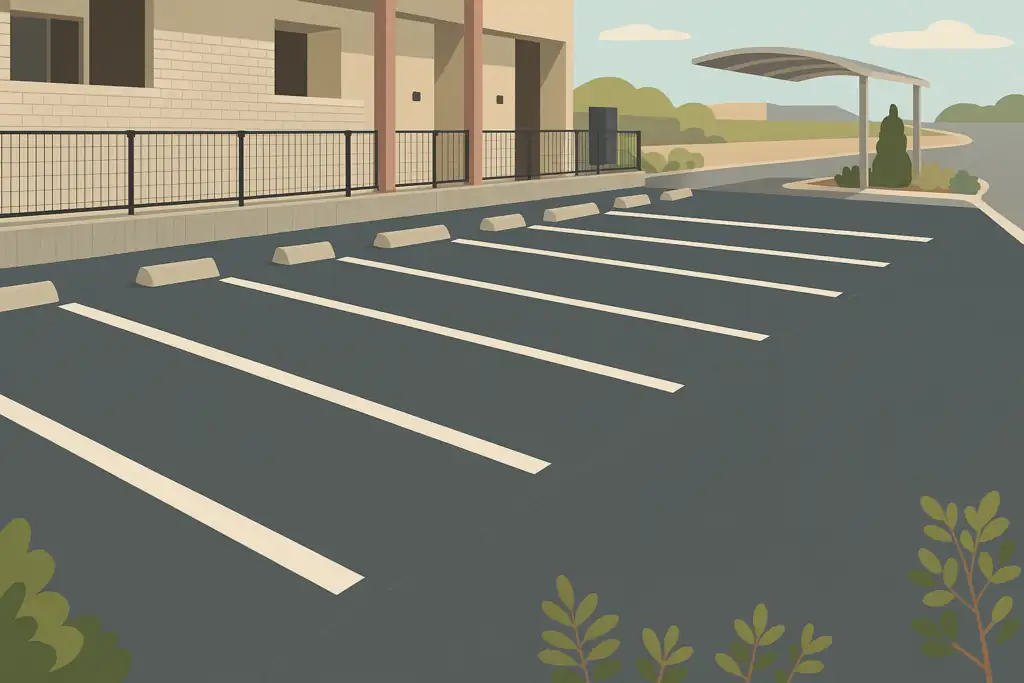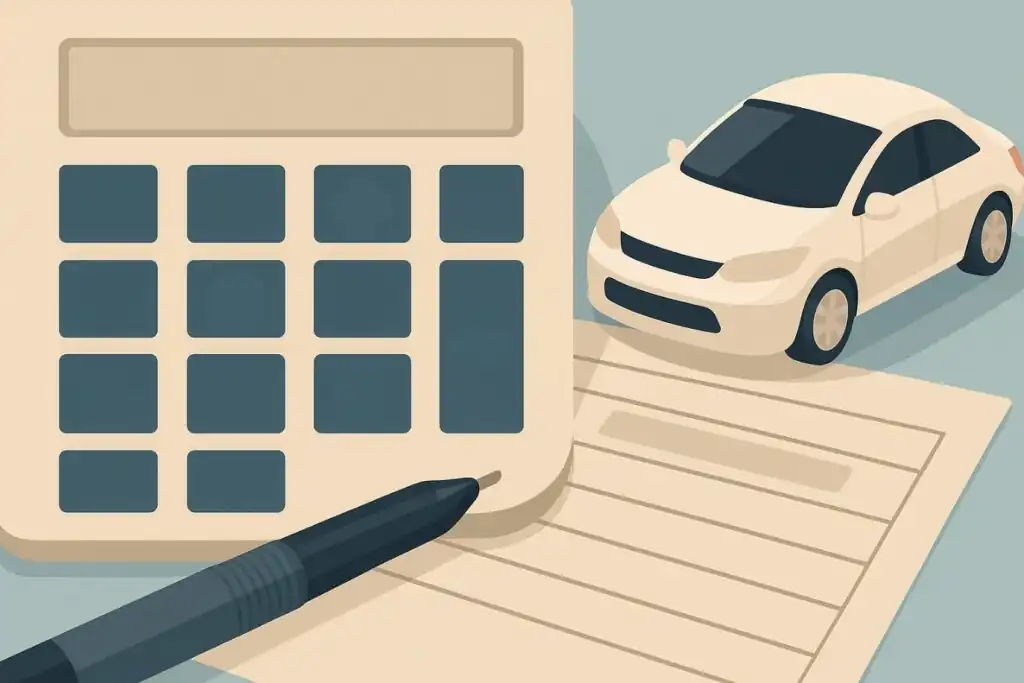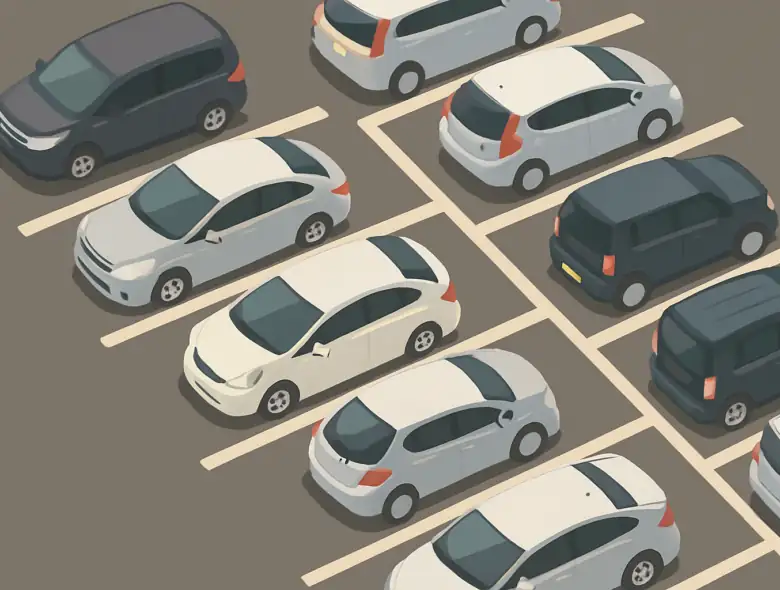Living in the countryside certainly has its benefits and with Village House, you have many options for rental apartments in many regions all across Japan. In the rather rural areas of the county, public transportation can be infrequent or even non-existent and you might not get around using a car. On the contrary, if you live in one of the major Japanese cities, you get to benefit from a fantastic public transport system – it’s spotless, it’s – generally – extremely punctual, and it connects you to almost every nook and cranny of the city.
So, does one need a car if living in a major Japanese city? Well, that really depends on you. Local surveys have shown that around two-thirds of Japanese households in central Tokyo don’t have a car. Why? Well aside from the excellent public transport, the costs of owning a car in Japan can become extremely expensive.
Buying a car in Japan, ironically enough, can be considered relatively affordable, with a small, new car costing around 1.2~1.4 million yen. However, when you own a car, the bi-annual inspections (shaken), compulsory insurance, and automobile tax can really add up – a 2021 survey revealed that the average monthly maintenance costs for a private passenger car cost around ¥11,700.
Then there are the inevitable parking fees…
Parking Space

It comes as no surprise that there is an absolute lack of space in many major Japanese cities where land comes at a premium. What parking spaces are available are limited and tight, so tight that there is an unwritten rule that when parking in Japan, drivers should also reverse into the parking space so it’s easier for them to see any oncoming traffic, pedestrians, or other obstacles when leaving.
There are three general types of parking lots and spaces in Japan:
Street parking with meters – common everywhere, you buy a ticket from the meter and stick it behind your windshield for the inspectors to check.
Coin parking lots – very common in Japan. When you park your car in one of these lots, a wheel lock will hold your car in place until you pay your parking fee in full.
Parking garages – an automated parking space that sends your car to a designated lot in a building or underground. Such parking spaces can be standalone facilities or attached to a mall.
Car Parking Fees

How much you pay for a parking spot is highly dependent on where you are so if you’ve decided to drive into central Tokyo and need a place to stash your car, well, be prepared to spend more.
In general, prices for parking can start anywhere from ¥100 per 15 minutes up to ¥500 per hour. There are also parking spaces where you can leave your car for up to 24 hours for prices starting at around ¥1000.
If you’re looking for long-term parking and you live in Tokyo, you may want to reconsider getting a car. Tokyo ranks as one of the Top 5 cities in the world with exorbitant and eye-watering parking fees; and if this doesn’t put you off, the hunt for finding a parking space within 2km of your registered address might. Before even purchasing a car, one needs to provide “proof” of parking space – this is due to the lack of parking in cities like Tokyo where space is limited. If the previous two hurdles have not proved enough of a deterrent, then let’s move on to long-term parking fees.
Illegal parking

Finding parking in cities can be tricky due to the number of cars on the road and lack of space. This is especially true for cities in Japan, which are famously compact and dense. If you happen to be driving into one of Japan’s many cities and are struggling to find somewhere to park on the street, it’s often better to find a paid parking space than to attempt to park in an empty space and accidentally find yourself parking illegally.
Some examples of illegal parking in Japan include:
- Parking on roads that are close to or in intersections
- Parking on pedestrian and bicycle crossing zones
- Parking near bus stops and vehicle entrances
- Parking in areas that block access to fire hydrants, fire alarms, and other various emergency access points
To avoid unintentionally parking illegally, you can refer to this parking guide by the Metropolitan Police Department.
If you do, unfortunately, end up parking somewhere illegally, you will be issued with a parking violation sticker with a penalty fee ranging anywhere from ¥10,000 to ¥18,000. Should you be issued with this violation sticker, you should head over to the police station stated on the sticker to report your violation notice. Once there, you need to fill out some paperwork in order to receive a payment notice, which you can then take to the nearest bank or post office to pay. Make sure you get proof of payment receipt to show that you have paid the fine. This is especially important if you are using a rental car because the rental car company will request a copy of all the completed paperwork and proof of payment that shows you have reported the illegal parking violation and paid the fine.
Average Cost

Monthly parking rental in Japan is called tsukigime-chushajo and in order to score yourself a parking spot, you’ll need to a shakoshomeisho, which is a parking space certificate. Getting one of these will cost you about ¥2,000. The caveat is that you can’t get just any parking spot – it has to be within 2km of your registered address. You also have to ensure that the dimensions of the parking space are greater than that of your car.
The national average a private car owner pays for a monthly parking space is around ¥8,300. However, if you’re in Tokyo and are planning to get a car, be ready to spend somewhere between ¥30,000 to ¥50,000 though prices per month for a parking spot can climb up to ¥80,000, especially if you’re in a very central and upscale location.
Contract

To find a parking space – within 2km of your registered address in case that hasn’t sunk in yet – you can a) scour the internet (check out websites like Nippon Parking Search and carparking.jp); b) talk to your real estate agent (if you’re going with Village House, ask if the property comes with parking.); or c) walk around your neighborhood to see if there are any parking spaces available for rent.
Most monthly parking space contracts last 12 months, with some being a minimum of 6 months. Breaking the contract early could result in penalty fees, as is a common procedure if you’re renting a parking space.
To apply for a parking space, you’ll either need to inquire with the owner or consult with a real estate agent. However, before signing a contract, inspect the parking space in person, preferably with a measuring tape so you can measure the space and ensure it fits your car. Ask whether the parking lot organization or owner issues the parking space certificate, necessary for buying a car.
If everything looks good, you can start the process of obtaining a contract…after you’ve passed two screenings: the guarantor screening and the general screening.
Once you’ve passed the screenings hurdle, be prepared to pay for some initial fees, which can amount to around 3 months of rent – you’ll need, at minimum, to pay a deposit, one month’s rent in advance, and possibly key money, which you won’t get back. Sounds like a lot, right? Well, it is, so before you sign anything, or press your hanko into the circle; ask about contract periods, terms and conditions of your lease, and the conditions of canceling your contract early or renewing it.
Checklist of documents for signing a parking contract

Depending on which city or prefecture you live in, the paperwork and documents you may need to obtain may differ. However, in general, these are the documents that you may need in order to sign a parking contract:
- Proof of address. This is to show that you live in the vicinity of the parking space that you intend to rent and use. Examples of proof of address documents can include your family registry, a seal (hanko) certification, or a document with your address on it like a bank statement or utility bill.
- Vehicle inspection certificate or shakensho. This is your car’s vehicle inspection certificate.
- The following forms can be obtained from your local police station or city hall:
- Parking space certification application form
- Vehicle parking space proof application
- Notification form for a parking spot
- Proof of parking space usage. These can come in various forms, depending on the following:
- If you are the owner of the parking space, a self-acknowledgment form will suffice
- If you are renting the parking space from someone else, then it is necessary to obtain a copy of the rental contract or a form of consent from the owner
- If you are renting from the real estate agency that is managing the parking space, you will need to obtain a parking space usage consent certificate from them
- Other possible documents that may need to be obtained include:
- A map or layout of the parking space you intend to rent and use
- A document outlining the details of your vehicle. Information can include the model, type, chassis, number, and size of the vehicle
Bear in mind that you may also need to pay administration fees in order to obtain certain application forms, permits, and documents.
Discount

When it comes to parking spaces, discounts are few and far between considering the imbalance of demand and supply. However, if, while canvassing your neighborhood for potential parking spots, you might be lucky and find someone who has an unused parking space or a piece of land that can substitute as a parking spot.
In these types of situations, if you can negotiate directly with the owner, that might be best because you can potentially haggle over rent and contract conditions if you’re savvy enough. In general, though, in the greater Tokyo area at least, such parking spaces cost between ¥20,000 and ¥40,000 per month.
Well, there you have it; a rough guide to parking fees in Japan, especially if you happen to live in Tokyo but still insist on a car. Remember to do your research and scope out any and all potential parking spaces; ask about the conditions of your lease, and brace yourself for parting ways with some – or a lot – of your hard-earned salary.
In general, if you need a car in your life, and like to still be able to save some money, Village House might be a good solution for you with options for onsite parking in many of our properties!
Related articles:



